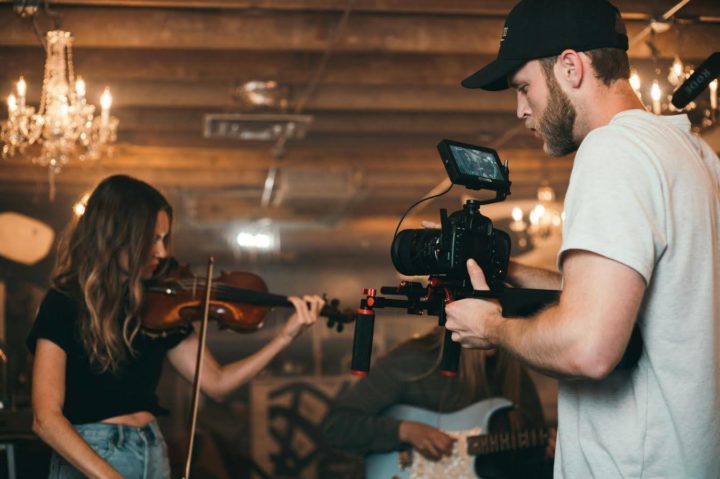10 Ways Music for Business Can Help Promote Items
Music is a powerful marketing tool that can profoundly affect customer behavior and perceptions. Incorporating the right music into a business environment can significantly impact product promotion, creating a positive atmosphere, influencing purchase decisions, and enhancing brand identity.
Music is an invaluable tool for promoting products in both physical and digital business environments. From creating a positive atmosphere to reinforcing brand identity, music enhances the overall customer experience and helps drive sales. By influencing customer emotions, setting the right tempo, and encouraging impulse purchases, businesses can leverage music to promote items more effectively.

Moreover, by using music to support themed promotions, enhance the perceived value of products, and create memorable experiences, businesses can stand out in a crowded marketplace. Whether it’s playing the right background music in a store or using engaging soundtracks in digital ads, music for business is a powerful way to connect with customers and promote items successfully.
Creating a Positive Atmosphere
The atmosphere within a store or business setting is essential for attracting and retaining customers. Background music can be carefully selected to create an inviting environment that aligns with the brand and appeals to the target audience. Whether it’s calming music in a spa, upbeat tunes in a retail store, or elegant tracks in a boutique, the right music makes customers feel comfortable, encouraging them to spend more time in the establishment. When customers linger, they are more likely to discover and purchase items.
Influencing Customer Emotions
Music can evoke strong emotions and has the power to subtly influence customers' moods and feelings. By strategically playing music that resonates emotionally with customers, businesses can create a positive emotional response associated with specific products. For example, uplifting and cheerful music may evoke feelings of joy, making customers more receptive to purchasing items that align with those emotions. Similarly, nostalgic music can tap into customers’ memories and create a connection that makes them more inclined to purchase a product that feels familiar or comforting.
How to Elevate Your Interior Design Business to the Next Level
Reinforcing Brand Identity
Music plays a key role in reinforcing a brand’s identity and values. By aligning the music played in-store with the brand's personality, businesses can strengthen their message and promote items more effectively. For instance, a brand that promotes sustainability and eco-friendliness might use earthy, acoustic music to reinforce its values. When customers perceive a strong, cohesive brand identity, they are more likely to feel connected to the brand and trust the products it offers, which can lead to increased sales.
Setting the Tempo for Customer Behavior
The tempo of music can directly influence customer behavior, particularly their pace as they move through a store. Faster-paced music tends to increase the speed at which customers shop, while slower music encourages them to take their time and browse. Businesses can use this to their advantage by playing slower music to promote high-margin or high-visibility items, encouraging customers to spend more time in sections where these products are displayed. This technique subtly increases the likelihood of impulse buys and higher overall sales.
Creating Memorable Experiences
Memorability is key in driving repeat business and product promotion. Music can be used to create unique and memorable experiences for customers, making them more likely to return and recommend the business to others. For example, a store that regularly hosts live music performances or features a carefully curated playlist can create a distinctive experience that sets it apart from competitors. When customers associate positive, memorable experiences with a business, they are more likely to return and purchase the items promoted within that environment.
The Ultimate Guide to New Experiences in Las Vegas
Boosting Perceived Value of Products
Music can subtly enhance the perceived value of products. By playing music that is associated with luxury, sophistication, or exclusivity, businesses can elevate the perception of their products. For instance, classical or jazz music in a high-end store can make items feel more luxurious and justify premium pricing. This psychological effect makes customers more likely to view the products as higher quality and worth the investment, even if the price point is higher than they originally anticipated.
Directing Attention to Specific Products
Businesses can use music strategically to direct customer attention to specific products or promotions. For example, playing distinctive or themed music near a product display can draw customers’ attention and make them curious about the items featured there. Seasonal music, such as holiday tunes, can also be used to promote specific products tied to that season or holiday, enhancing their appeal and encouraging customers to make a purchase.
Encouraging Impulse Purchases
Music has a profound impact on decision-making processes, particularly impulse buying. Upbeat and dynamic music can energize customers, making them feel more spontaneous and inclined to make unplanned purchases. For example, playing lively music in a checkout area or near promotional displays can increase the likelihood of customers picking up last-minute items before they leave the store. When music creates a lively and engaging environment, it lowers customers' resistance to making impulse purchases.
How to Promote a Blog
Supporting Themed Promotions
Music can enhance the effectiveness of themed promotions by creating a cohesive atmosphere that ties into the promotional message. For example, during a summer sale, businesses can play tropical or beach-themed music to create a fun, seasonal vibe that encourages customers to engage with the promoted items. Similarly, during a holiday promotion, playing festive music helps create a sense of celebration and excitement around the products. Themed music can make promotions feel more immersive, enhancing customer engagement and increasing the likelihood of purchases.
Enhancing Social Media and Digital Promotion
Music doesn’t just have an impact on physical business environments—it also plays a crucial role in digital marketing. Businesses can use music in their social media videos, promotional content, and advertisements to create a mood and draw attention to products. Catchy music can make digital ads more engaging and memorable, leading to better recall and increased interest in the promoted items. For example, an upbeat soundtrack in a social media ad can make the product appear more exciting and desirable, encouraging viewers to take action and make a purchase.
The Influence of Social Media on Casino Marketing




